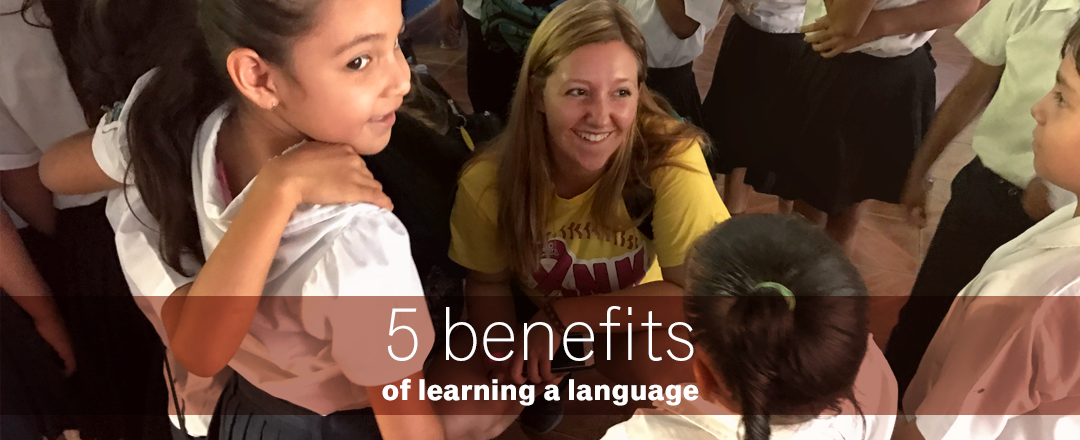Why learn another language? With Google Translate and other language apps on the rise, it may seem unnecessary. But our phones are far from replacing bilingualism, and learning another language can help you in ways you would never have guessed.
Here are five hidden reasons to keep collecting those foreign language credits:
- Boost your brainpower
Bilingualism doesn’t just make you a better communicator: it turns out that learning a language can make you smarter, too.
A study at the University of Edinburgh confirms that language learning improves your attention and mental alertness. And it could even help your brain stay sharp for the rest of your life: Research also shows that bilingualism could stave off the effects of Alzheimer’s as you age.
- Help your English
No, it’s not a contradiction: Learning another language can actually do great things for your English, especially if it’s a Romance or Germanic language, the two language families from which English borrows the most. This can boost your vocabulary, as you learn root words that relate to vocabulary in English.
- Improve multi-tasking and decision-making
Worried that you’ll have trouble keeping your languages straight? Don’t. Turns out, juggling this information is good for your brain.
A Penn State study confirmed that people who speak more than one language are better at working on multiple tasks and prioritizing them. Instead of causing confusion, bilingualism improves mental prowess by helping you learn to “juggle” different ideas. It may also help you make better decisions.
- Secure your future
That decision-making ability might come in handy with your university and career options, which you may have more of if you know another language.
Many universities require language learning from their applicants, and employers love seeing a second language on a resume or CV. Depending on where you work, it can be essential, but wherever you go, it will make you an asset to the company.
- Have fun!
Speak to your friends in “code,” show off your skills when you travel, and enjoy the thrill of being able to read and speak in another language. When you take the time to learn another language, you’re not just memorizing words: you’re taking a step into a larger world.
And bilingualism has wider consequences for you as an individual: not only does it make it easier to order ice cream in Germany, it also helps you build relationships, learn about other cultures, and grow as a global citizen when you connect with people in their language.
Ready to get started on a language adventure? Check out our language immersion tours!

